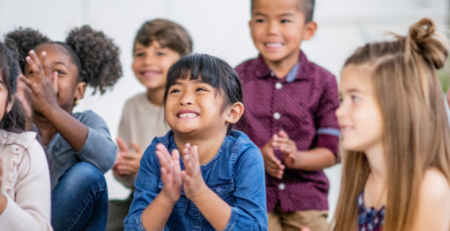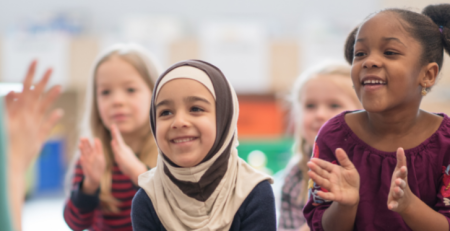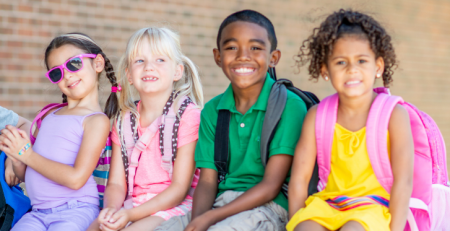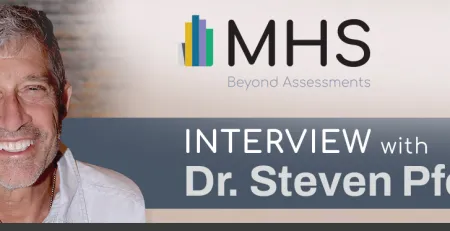Enhancing Resilience and Social Competency in Gifted Education
Key Takeaways:
- While academic performance is often seen as the primary indicator of a student’s future success, resilience, and social competency are equally important. These skills help students manage stress, navigate social situations, and build strong relationships, which are critical for success in school and their future careers.
- Gifted students often face specific challenges in addition to common psychological issues like anxiety and depression. Addressing these needs through education that includes training in resilience and social competency can significantly enhance their overall development and well-being.
When it comes to student success, grades are often accepted as an objective measure of achievement. Typically, future success of students can be predicted in a straightforward manner through current classroom grades. Grades, however, don’t always tell the whole story. Especially for gifted students, good grades can obfuscate or distract from other determinants of success, particularly resilience and social competency.
What are resilience and social competency?
Broadly, resilience refers to how well a student can regulate their own emotions and respond to stressors. A student with high resilience is more capable of remaining calm in a crisis, combatting thoughts of self-doubt, and being proactive rather than reactive, which makes it easier for them to come up with solutions. Social competency refers to a student’s ability to form and maintain relationships and be aware of the feelings and social situations of others. Someone with high social competency will find it easier to communicate ideas clearly, resolve disputes, dissolve tension, and work collaboratively.
Even with impeccable grades, a gifted student without developed resilience and social competency skills may find it challenging to succeed in the long term. Stress management, adaptability, decision-making, problem-solving, and communication skills are all highly desirable skills, both in school and the workplace, so it is critical that students develop these abilities so they can maximize their chances of success1.
What are some unique needs gifted students may have?
One common issue gifted students encounter is related to a part of their giftedness itself, which is asynchronous development. Asynchronous development can lead to a student perceiving themselves to be misaligned with their nongifted peers2. A perception of misalignment, poor regulation (a student’s ability to adaptively meet the demands of their environment) and perfectionism, which make them more susceptible to mental health challenges.
In addition to these issues specific to gifted students, challenges common to all students may occur, like anxiety, depression, trauma, suicidal ideation, and sexual identity issues.
Furthermore, a number of gifted students are twice exceptional, meaning they may have disabilities or psychological disorders such as ADHD, Asperger’s, and eating and mood disorders2. Twice exceptionality can make it difficult for parents to address their child’s need for more challenging coursework while balancing support for their psychological difficulties.
How can developing resilience and social competency in education help address these needs?
Educating students on resilience and social competency enhances their self-awareness by helping them understand their emotions, recognize their strengths and weaknesses, manage stress, and set goals. It also teaches them how to make responsible and ethical decisions by improving their critical thinking and problem-solving skills, which can help students anticipate the consequences of their actions3.
An education that includes resilience and social competency training helps to foster compassion and respect for peers, which can aid in conflict resolution and positive relationship building. It also arms students with a range of skills to combat stress and to remain calm and hopeful when faced with adversity3. These are lifelong skills that will serve the students well in their future studies, their careers, and personal and professional relationships. These skills can help gifted students with issues of negative perfectionism own their decisions, feel more confident in their abilities, and teach them to take a step back from their work and reduce stress levels. It can help students with psychological disorders like ADHD to react proactively to their differences instead of feeling defeated.
Measuring resilience and social competency for further development
Dr. Steven Pfeiffer is a licensed psychologist, speaker, author, and consultant whose work focuses on the social and emotional needs of gifted students. He is firm in his belief that it takes more than just talent to make a student truly successful:
Successful gifted kids bring to situations, in school as well as in their social lives, well-developed social skills, character strengths such as empathy and compassion, and a well-honed ability to understand, read, and control their own and others’ feelings; that is, emotional intelligence. All three of these important prophylactic constructs—social skills, character strengths, and emotional intelligence—help make a huge difference in the lives of gifted kids4.
Those three constructs encompass what Dr. Pfeiffer affectionately refers to as “strengths of the heart.” While most gifted education programs aim to enhance strengths of the head, such as academic achievement, memory, organizational skills, and talent, Dr. Pfeiffer advocates that programs should include training in resilience and social competency to maximize the potential for student success.
Dr. Pfeiffer is the co-author of the Gifted Rating Scales™ Second Edition (GRS™ 2), an assessment designed to help identify students for gifted and talented educational programs. The assessment now includes a parent-rated form with a Level of Resiliency and Social Competency scale, perfect for determining how well-developed a student is in these areas. Social competency can be observed in a variety of contexts, such as when working on challenging academic tasks, pursuing artistic endeavors, or engaging in a group environment.
With the GRS 2, it has never been easier to identify the various areas in which a student may excel or require extra development in. Educators now have a single solution for both identifying gifted youth and measuring resilience and social competency. The GRS 2 explores more than just academic achievement; it measures creativity, artistic talent, and leadership abilities. By obtaining a fuller picture of a student and identifying their strengths, it is possible to devise a more individualized instructional plan, bringing them one step closer to being strong of both head and heart.
Have questions? Get in touch with a member of our team.
References
1 Collaborative for Academic, Social, and Emotional Learning (CASEL) Committee for Children. (n.d.). Why Social and Emotional Learning and Employability Skills Should Be Prioritized in Education.
2 Pfeiffer, S. I. (2020). Optimizing favorable outcomes when counseling the gifted: A best practices approach. Gifted Education International, 37(2), 142–157.
3 Everyday Speech. (n.d.) Building resilience: Exploring the benefits of social emotional learning curriculum.
4 Pfeiffer, S. I., Valler, E., Yarnell, J., Branagan, A., Smith, S. M., Barbash, E., & Saintil, M. (2016). Focusing on strengths of the heart in understanding success and psychological well-being of high ability students. Austin Child & Adolescent Psychiatry, 1(1), 1002.










